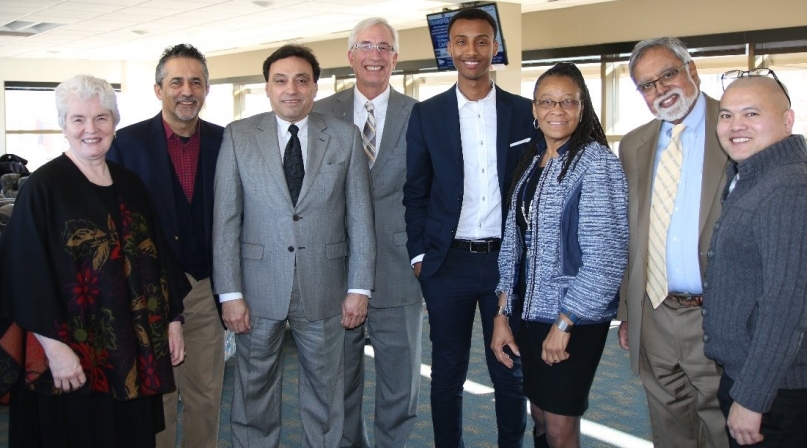Ramsey County college students ease their ways into full-time workforce

@RamseyCounty internships give local college students two years of in-depth experience
In their first economics classes, college students learn about opportunity cost and how doing one thing means missing out on something else. If they aren’t financially secure, they’re already well aware of that, especially if it has meant balancing a job and a full course load, often putting their education at risk.
Ramsey County, Minn. was aware of that. With an eye toward helping local college students succeed, the county manager’s office is awarding paid internships, spanning two academic years, to local college students at two-year Saint Paul College and four-year Metropolitan State University-Twin Cities.
“A lot of students just drop out of school because they can’t afford it,” said Carol Zierman, a senior analyst in the county’s policy and planning department. “That’s common among first-generation students, and the finances of a college education make it even harder for them to succeed.”
But a 20-hour work week, nine months of the school year, at $15 an hour takes a bite out of that challenge. The Progressive Student Internship Program gives them increasing responsibilities and challenges, and builds their resumes in the process.
“By the time the student completes their undergraduate degree, they’ve gained two years of professional experience and three serious professional references,” she said. “They’re in a whole different position when they apply for jobs.”
Though the program isn’t specifically aimed at recruiting students to come work for the county, Zierman said the increased familiarity they gain isn’t a bad thing.
“It certainly gives them exposure to all the things the county does,” she said. “They also might not be ready to take on their internship jobs full time when they graduate, but their experience will certainly put them ahead of the curve.”
The current interns, one a 22-year-old accounting student and the other a 38-year-old former YWCA manager, are spending their first year in the finance and parks and recreation departments, respectively. The next cohort will be assigned to human services and property assessing and tax departments.
Khalid Dayib is a fourth-year student at Metropolitan State, working on a double major in accounting and management information systems. He heard about the program from an email sent to all accounting majors, but was already familiar with local government after spending the summer of 2015 working for Minneapolis’ finance department.
So far, he’s enjoying the experience.
“I’ve had internships before where they give you something to do and you end up having a lot of free time,” he said. “I enjoy staying busy, which I do here, having substantial work to do I can transfer my skills into the next position.”
He’s coming back for the next academic year while he finishes his second major, but over the summer, he’ll be working in the state’s department of revenue, in large part because of the strength of his progressive internship with Ramsey County.
Much of Dayib’s work recently has been on credit card payment security standard compliance throughout the county, which has prompted work with 24 different departments. He will present his findings to the county audit committee in April.
His experience in city administration helped him adjust quickly, but not all interns will have his background.
“The county manager’s office contributes the salaries but the departments that take the interns make major investments in terms of time and supervision for each of the roles,” Zierman said, pointing out that the responsibilities each intern takes on is on par with that of a full-time staff member.
She said the ideal schedule will have students taking on the internships during their sophomore and junior years.
“It’s to make sure we as an employer are really providing the opportunity for our community to get experience, and our young leaders to get experience to reach their greatest potential.”
The program’s position offerings are based on the opportunities available to intern-level staffers in the county’s four different divisions: health and wellness, public safety and justice, economic growth and community investment, and public information and records.
“We’re trying to make sure every service team has an opportunity to have an intern,” Zierman said.
In May, the program will expand to a post-bachelor’s degree graduate fellows finance track, a field that has proven hard for recruiting because of the competitive disadvantage inherent in public sector salaries.
Dayib has been tapped to help plan that finance track.
“I know what will appeal to people my age, how the county can attract applicants,” he said, though he admitted he had his eye on one of the six spots after he finishes his undergraduate degrees.
Attachments
Related News

Podcast: Developing your county workforce
Counties are finding a renewed interest in professional development as a feature of their careers.

